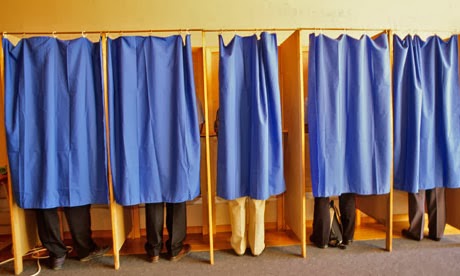Perhaps the most difficult aspect of any modern political system and
especially that of the US is to be able to
reconcile, at least from an ethical standpoint, the issue of campaign
finance with that of moral convictions and democratic principles..
Plato's
argument against democracy was that it would promote skilled
campaigners rather than qualified leaders. This statement needs only to
be amended slightly when we look at today's US political system.
In a sense the American democracy now promotes skilled
fundraisers while leadership skills have taken a backseat to the ability of extracting funds from contributors
The
real
ethical issues of campaign finance lie not in their cost, but
rather who is providing the funds. In today's America special interest
groups have filled the huge gap between private donations and the
realistic costs of running
a successful political campaign. These interest groups are quite
varied in
the issues they promote, but unfortunately many of the most powerful are
very
recognizable, such as energy, tobacco, firearm, insurance, healthcare
and the pharmaceutical industry.
Perhaps, even more disturbing, however, is the way that the funds from these groups
are distributed.
Historically, donations from political action
committees, or PACs as they are called in America, greatly favor incumbents, at a ratio of nearly four
dollars donated to incumbent campaigns to every one dollar donated to
the challengers.
This notion would seem to imply a
direct
relationship between accepting monies from special interests and
maintaining political power. In its most basic form one could call this
influence peddling, but even operating on the assumption that special
interest money does not directly has an influence on US political
leaders, it
certainly gives the appearance of doing so, and consequently has
seriously eroded the US public confidence in their political leaders and
democracy.
In
a Gallup poll conducted recently on how Americans rate their
institutions Congress ranks last with 9% on this list of 16
institutions; the military with a 76% approval rating earns top spot..
Other institutions which did poorly and scored below 30% in this poll
were: Big business (multi-nationals), banking, medical, the press,
organized labour and the criminal justice system.
Overall, even with all the above mentioned negatives, the US political system is certainly not beyond repair, but there
are problems that need to be addressed with a major sense of urgency. The time to take action is now.
The
number one issue, without any doubt, is for the Congress to come to
grips with campaign finance reform, along with stricter regulations on
the
influence and access granted to special interest groups and their
lobbyists to government and elected officials.
If
nothing gets done, at least in these two major area's of concern, one
could assume, just by looking at the polls - which show a strong public
support for the military and police (authority and order) - that the use
of marshal law as a tool to restore the basic principals on which the
US was founded as a Republic, is not as unthinkable as once thought
before.
 EU-Digest
EU-Digest





